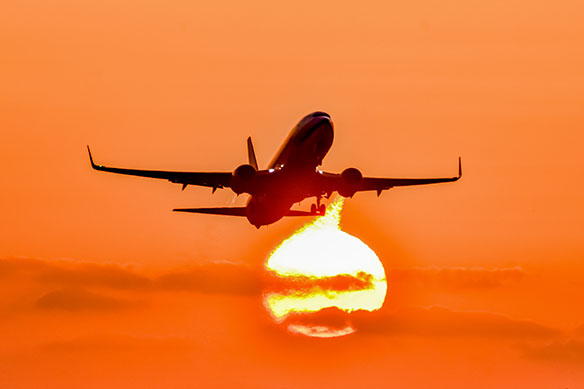Border Measures Continue To Drag On Air Demand

IATA reports that both international and domestic travel demand showed significant momentum in July 2021 compared to June, but demand remained far below pre-pandemic levels.
With the airline industry association indicating that extensive government-imposed travel restrictions continue to delay recovery in international markets.
In reporting the results, IATA said that because comparisons between 2021 and 2020 monthly results are distorted by the extraordinary impact of COVID-19, unless otherwise noted all comparisons are to July 2019, which followed a normal demand pattern.
- Total demand for air travel in July 2021 (measured in revenue passenger kilometres or RPKs) was down 53.1% compared to July 2019. This is a significant improvement from June when demand was 60% below June 2019 levels.
- International passenger demand in July was 73.6% below July 2019, bettering the 80.9% decline recorded in June 2021 versus two years ago. All regions showed improvement and North American airlines posted the smallest decline in international RPKs (July traffic data from Africa was not available).
- Total domestic demand was down 15.6% versus pre-crisis levels (July 2019), compared to the 22.1% decline recorded in June over June 2019. Russia posted the best result for another month, with RPKs up 28.9% vs. July 2019.
Willie Walsh, IATA’s director general, said that: “July results reflect people’s eagerness to travel during the Northern Hemisphere summer. Domestic traffic was back to 85% of pre-crisis levels, but international demand has only recovered just over a quarter of 2019 volumes. The problem is border control measures.”
Walsh continued: “Government decisions are not being driven by data, particularly with respect to the efficacy of vaccines. People travelled where they could, and that was primarily in domestic markets. A recovery of international travel needs governments to restore the freedom to travel. At a minimum, vaccinated travellers should not face restrictions. That would go a long way to reconnecting the world and reviving the travel and tourism sectors.”
IATA’s boss pointed out that: “As the Northern Hemisphere summer travel season draws to a close it is clear that too many governments missed the opportunity to apply a risk-based approach to managing their borders. The growing number of fully vaccinated travellers and the prevalence of testing provided the chance to restore international connectivity and bring much needed relief to economies that are heavily reliant on travel and tourism.”
Walsh continued: “Instead, governments continued to behave as if it was the summer of 2020. Economies and the labour force will pay the price for decisions that were made not based on science, but on political expediency.”
And he concluded: “Governments have rightly urged their populations to be vaccinated; now governments need to have confidence in the benefits of vaccinations—including the freedom to travel.”


